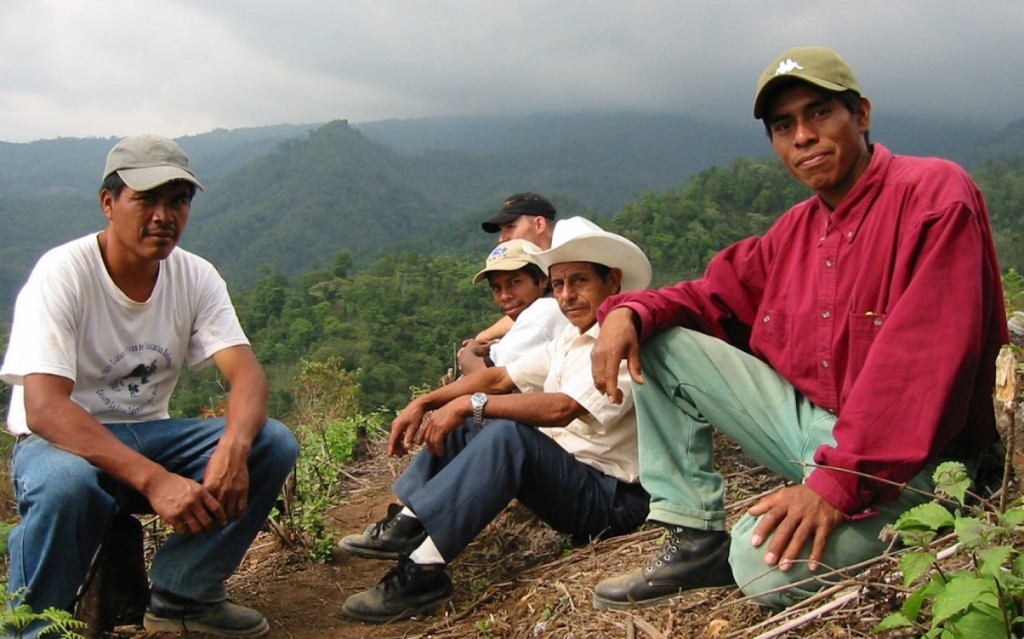Corporations That Benefit People and the Planet
CAPITALISM, 16 Mar 2015
Mary Turck – Al Jazeera America
Though they are still for-profit businesses, public benefit companies focus on environmental and social benefits.
Mar 13, 2015 – It’s not surprising to learn that corporations named Peace Coffee and Sustainable Earth Solutions were established with the public good in mind. But public benefit companies, or B Corps, include banks and investment firms, furniture makers and flour millers and thousands of varied corporations. The fast-growing B Corp movement is available in at least 38 countries and most U.S. states.
B Corporations pursue a triple bottom line: profit for shareholders, good for the environment and benefits for society. They pay the same taxes as other for-profit businesses. They do not get any special treatment from the government and derive their profits entirely from business activities.
So why sign on?
“By becoming a public benefit corporation,” Peace Coffee’s CEO Lee Wallace told me, “we want to be part of the businesses that are making communities better.” Peace Coffee is a for-profit coffee roaster in Minneapolis. Founded in 1996 and owned by the nonprofit Institute for Agriculture and Trade Policy, Peace Coffee registered as a public benefit corporation in January when Minnesota’s B Corp law took effect.
Being a B Corp was “a way to remind people that we run a profitable business with a lens of trying to do good things for people,” Wallace said during a recent interview in her office in a green building that boasts rooftop gardens and solar panels. That includes constantly balancing the “tension between benefiting communities and what that does to your finances.”
For Peace Coffee, that balance includes buying coffee beans from farmer-owned cooperatives in 11 countries. Commitment to a cooperative business model means membership in Cooperative Coffees, a coffee roasters’ importing co-op that supports small-scale farmers and their cooperatives.
According to the 1916 Dodge v. Ford Motor Co. decision by the Michigan Supreme Court, the highest priority for a regular corporation in the U.S. is making money for its shareholders. By contrast, U.S. states with public benefit corporation laws legalize and encourage businesses that elect to be governed by these laws to make different corporate choices. “We all do better when we all do better,” former Sen. Paul Wellstone, D-Minn., often said. Public benefit corporation laws encourage firms to join in helping all do better.
Many of the B Corps in the U.S. are small businesses, which generally have fewer shareholders, who are more involved in the business. This means that the shareholders may easily agree on changes in their corporate purpose or direction. Existing firms need the support of shareholders to become public benefit corporations. Minnesota law requires a minimum status vote of two-thirds of shareholders.
Larger corporations have more shareholders, who may have little shared purpose other than investment to make money. “I cannot imagine any of our large Fortune 100 public companies headquartered here in Minnesota would make such an election,” attorney Kimberly Lowe told Minnesota Business magazine in October.
B Corps mean different things to different people. In 42 U.S. states, the nonprofit corporation B-Lab certifies B Corps for “rigorous standards of social and environmental performance, accountability and transparency.” The third-party certification is similar to fair trade certification for coffee, or LEED certification for green buildings. B-Lab certification does not affect the firm’s legal status, but it confirms that the company is part of a community “working together toward one unifying goal: to redefine success in business.”
Beginning with Maryland in 2010, some 28 U.S. states have passed legislation establishing a separate legal status for B Corps. Under the Minnesota law, for example, a corporation can choose to be a general benefit corporation or a specific benefit corporation. In either case, the company’s articles of incorporation state what public purposes the firm chooses to pursue. Unlike ordinary corporations, a B Corp agrees to take action for the public good and to report publicly on those actions every year.
Sunrise Banks, which has had a B-Lab certificate since 2009, registered as a public benefit corporation in January. “We agreed that being certified and a part of this community gives us an opportunity to exercise our leadership not only in the Twin Cities but across the country,” reads its B-Lab page. Sunrise “seeks to radically change the way urban communities and underserved people thrive by empowering them to achieve their aspirations,” according to its mission statement. As part of this commitment, 60 percent of the bank’s loans originate in low- or moderate-income communities.
Each B Corp chooses its own tools in pursuit of that triple bottom line of profits, people and environment. Many B Corps give employees paid time off to do volunteer work in the community. For example, according to B-Lab’s blog, Vermont-based King Arthur Flour emphasizes “environmental responsibility, community engagement and the wellness and satisfaction of employees,” and in contrast to the industry standard of subcontracting for installation of renewable energy and energy efficiency technologies, California’s Sun Light & Power “hires full-time employees and provides a living wage, health benefits, a retirement plan and paid time off.” Warby Parker designs and delivers low-cost eyeglasses and, according to its website, “partners with nonprofits like VisionSpring to ensure that for every pair of glasses sold, a pair is distributed to someone in need.”
B Corps offer an alternative to capitalism run rampant — a choice to make profit just one of many corporate goals rather than the only or primary goal. With the protection of public benefit corporation laws, businesses that profess a commitment to their communities can make profits while giving back to their communities.
________________________
Mary Turck is an adjunct faculty member at Macalester College and a former editor of The Twin Cities Daily Planet.
Go to Original – aljazeera.com
DISCLAIMER: The statements, views and opinions expressed in pieces republished here are solely those of the authors and do not necessarily represent those of TMS. In accordance with title 17 U.S.C. section 107, this material is distributed without profit to those who have expressed a prior interest in receiving the included information for research and educational purposes. TMS has no affiliation whatsoever with the originator of this article nor is TMS endorsed or sponsored by the originator. “GO TO ORIGINAL” links are provided as a convenience to our readers and allow for verification of authenticity. However, as originating pages are often updated by their originating host sites, the versions posted may not match the versions our readers view when clicking the “GO TO ORIGINAL” links. This site contains copyrighted material the use of which has not always been specifically authorized by the copyright owner. We are making such material available in our efforts to advance understanding of environmental, political, human rights, economic, democracy, scientific, and social justice issues, etc. We believe this constitutes a ‘fair use’ of any such copyrighted material as provided for in section 107 of the US Copyright Law. In accordance with Title 17 U.S.C. Section 107, the material on this site is distributed without profit to those who have expressed a prior interest in receiving the included information for research and educational purposes. For more information go to: http://www.law.cornell.edu/uscode/17/107.shtml. If you wish to use copyrighted material from this site for purposes of your own that go beyond ‘fair use’, you must obtain permission from the copyright owner.

